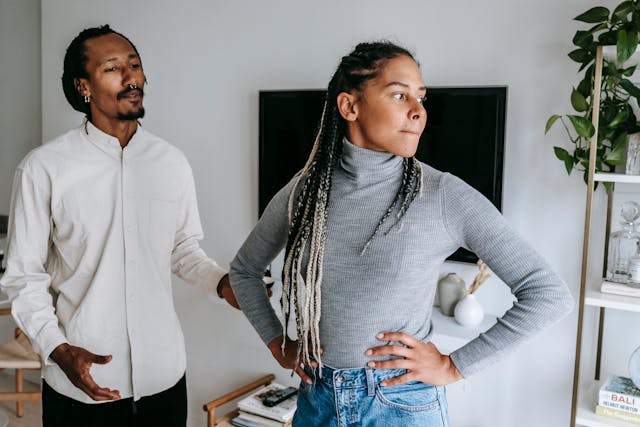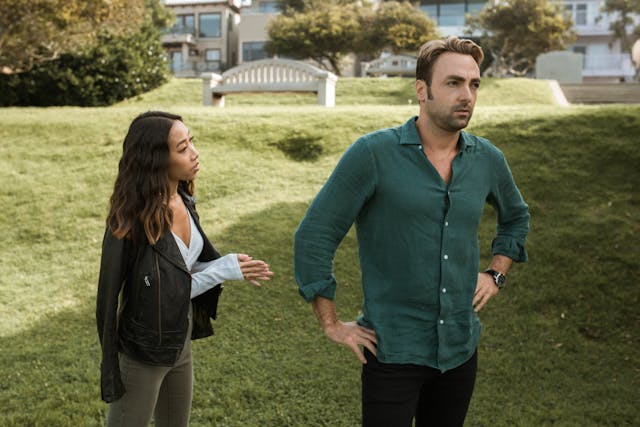Not every relationship is meant to last, and sometimes the ones that hurt the most teach us the most.

While bad relationships can be painful, they often leave you with some important lessons that shape how you love in the future. The experiences you go through — toxic behaviour, communication breakdowns, mismatched values, etc. — can help you build healthier, stronger relationships down the line. These are some of the important lessons that bad relationships teach you, so you can have better ones in the future.
1. Love alone isn’t enough to make a relationship work.

Many people stay in bad relationships because they believe love should be enough to hold things together. But no matter how much you care about someone, love alone can’t fix major issues like lack of respect, trust, or emotional availability. A strong relationship needs more than just feelings — it needs effort, compatibility, and mutual respect. Learning this lesson the hard way can be painful, but it helps you recognise what truly makes a relationship last. The next time around, you’re less likely to tolerate unhealthy dynamics just because love is present. You’ll understand that love needs a solid foundation to thrive.
2. Ignoring red flags never makes them disappear.

Bad relationships often start with small warning signs that get ignored. Maybe you brushed off their controlling behaviour, excused their lack of communication, or convinced yourself that their jealousy was a sign of love. But red flags don’t fade; they usually get worse over time. Once you’ve been through a relationship where you ignored the warning signs, you learn to take them more seriously in the future. Instead of making excuses for bad behaviour, you recognise that red flags exist for a reason. Trusting your instincts becomes a priority.
3. Boundaries aren’t optional, they’re necessary.

Bad relationships often expose just how important boundaries are. If you’ve ever been in a situation where your boundaries were ignored, disrespected, or walked all over, you know how damaging that can be. It’s easy to think that setting boundaries will push someone away, but in reality, they protect your emotional well-being. After experiencing what happens when boundaries aren’t in place, you learn to enforce them without guilt. You realise that the right person will respect your limits rather than test them. Strong boundaries set the foundation for a healthy relationship where both partners feel valued.
4. You can’t change someone who doesn’t want to change.

One of the biggest lessons bad relationships teach is that you can’t “fix” someone who isn’t willing to grow. No amount of love, patience, or effort will change someone who refuses to take responsibility for their own issues. If they don’t see a problem with their behaviour, nothing you do will make a difference. Learning this helps you let go of relationships where you’re the only one trying. Instead of exhausting yourself trying to change someone, you learn to choose people who are already capable of meeting you halfway. A healthy relationship doesn’t require you to play the role of a fixer.
5. How someone treats you is more important than what they say.

Empty words and broken promises are common in bad relationships. You might have believed in the potential of what someone said they would do, only to realise their actions never matched their words. It’s easy to get caught up in sweet talk, but actions will always speak louder. Once you’ve been in a relationship where words didn’t align with behaviour, you start paying closer attention to how someone actually treats you. You stop settling for promises and start valuing consistent effort. A good relationship is built on follow-through, not just words.
6. Time invested doesn’t mean you should stay.

Many people stay in bad relationships because they’ve already put in so much time and effort. But just because you’ve been with someone for years doesn’t mean you have to keep tolerating unhappiness. A long relationship isn’t automatically a good one. After leaving a relationship that dragged on for too long, you learn that time alone isn’t a reason to stay. You start prioritising your happiness over the fear of wasting years with someone. The right relationship won’t feel like something you have to endure; it’ll feel like something that continues to grow.
7. People show you who they are early on — believe them.

Bad relationships teach you that when someone reveals their true nature early on, it’s best to believe them the first time. If they show signs of dishonesty, emotional unavailability, or disrespect at the start, those traits won’t magically disappear later. Instead of hoping someone will change, you learn to accept what they’re showing you. This helps you avoid wasting time on people who aren’t capable of being in a healthy relationship. You become more aware of the importance of emotional maturity and consistency.
8. Walking away doesn’t mean you failed.

Leaving a bad relationship can feel like admitting defeat, but in reality, it’s one of the strongest things you can do. Many people stay in unhealthy situations because they don’t want to feel like they’ve given up. But choosing yourself isn’t giving up, it’s growing up. Once you’ve walked away from a relationship that wasn’t serving you, you realise that ending something bad is a victory, not a failure. It gives you the space to build something better in the future. Walking away is sometimes the most powerful choice you can make.
9. Love should feel safe, not stressful.

Bad relationships can make love feel like something that’s full of anxiety, uncertainty, or emotional exhaustion. If you’ve ever felt like you had to constantly walk on eggshells or “earn” someone’s love, you know how draining that can be. A healthy relationship feels like a safe space, not a source of stress. After experiencing a relationship that made you feel on edge, you learn to look for partners who bring peace rather than chaos. Love isn’t supposed to be a constant battle.
10. Settling for “good enough” will eventually make you miserable.

Many people stay in bad relationships because they convince themselves that it’s “good enough.” Maybe there are some happy moments, or maybe they think they won’t find anything better. But settling for a relationship that doesn’t fulfil you will only lead to long-term unhappiness. Bad relationships teach you that you deserve more than just ‘okay.’ You learn that real love shouldn’t feel like something you have to put up with; it should feel like something that brings joy, growth, and connection.
11. Jealousy and control aren’t signs of love.

Many people mistake possessiveness or jealousy for passion, but in reality, those behaviours are more about control than love. If a partner tried to control who you talked to, where you went, or what you did, it wasn’t because they “cared too much” — it was because they didn’t respect your autonomy. Once you’ve experienced a controlling relationship, you realise that true love is built on trust, not fear. A healthy partner doesn’t try to own you; they support your freedom and individuality.
12. You can’t love someone into loving you properly.

If you’ve ever been in a relationship where you gave everything and got very little in return, you know that love alone doesn’t fix one-sided effort. No matter how much love you pour into someone, if they aren’t willing to meet you halfway, it won’t change anything. Healthy relationships are mutual. If someone isn’t willing to give the same energy back, you learn to stop overextending yourself. You start choosing relationships where love is freely given rather than constantly fought for.
13. Trust isn’t something you should have to beg for.

Being in a relationship where trust is constantly broken can be exhausting. If you’ve been lied to, manipulated, or constantly doubted, you understand how damaging a lack of trust can be. Bad relationships teach you that trust isn’t something that should be earned over and over; it should be a natural part of the relationship. In the future, you’ll prioritise honesty and reliability, knowing that real love isn’t built on insecurity.
14. The right relationship won’t make you question your worth.

Bad relationships can make you feel like you’re not enough. Whether it’s through constant criticism, lack of affection, or emotional neglect, they can leave you doubting your value. When you’re with the wrong person, you might find yourself constantly trying to prove your worth, wondering if you’re lovable or if you’re asking for too much. In a healthy relationship, you won’t feel like you have to earn love or validation. The right partner will make you feel secure, valued, and appreciated just as you are. You learn that real love doesn’t come with conditions or make you question your place in someone’s life — it feels natural, supportive, and reassuring.
15. Apologies without changed behaviour mean nothing.

Bad relationships often come with a cycle of empty apologies followed by repeated patterns of the same hurtful behaviour. You might have heard endless “I’m sorry” statements that never led to actual change. Over time, you learn that words alone don’t mean much; genuine change is what really matters. In healthier relationships, you’ll recognise that true apologies come with accountability and effort to do better. You stop falling for hollow words and start looking for real action. When someone truly values you, they’ll show it through their choices, not just their promises.
16. Being alone is better than being in the wrong relationship.

One of the most important lessons a bad relationship teaches is that being single isn’t something to fear. Many people stay in unhappy relationships because they’re scared of being alone, but after experiencing an unhealthy dynamic, you realise that peace is better than constant stress. Once you’ve gone through a bad relationship, you start to value your own company more. You learn that you’d rather wait for the right relationship than settle for one that drains you. Independence becomes something you embrace, rather than something you avoid.




